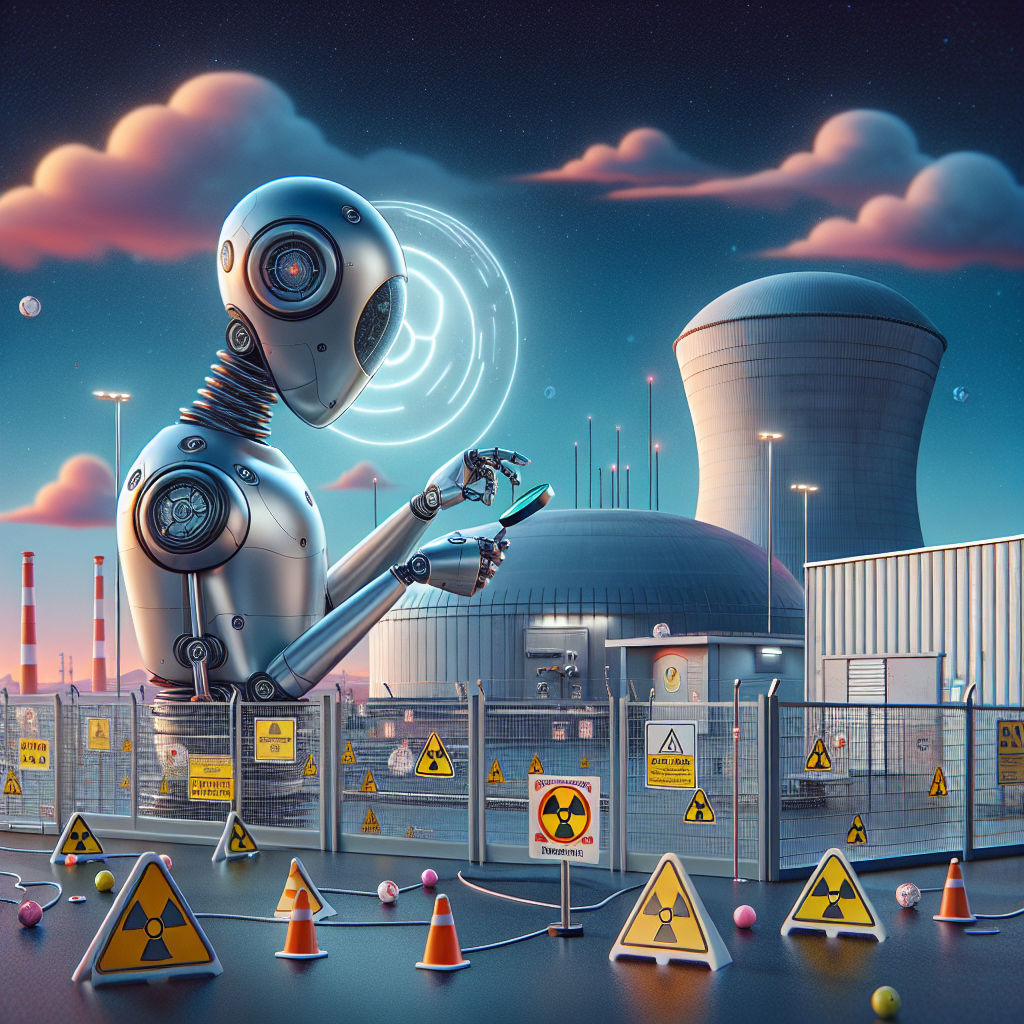IAEA Head Highlights Key Issues on Nuclear Safety, Cooperation, and Climate Action in Board of Governors Briefing
Grossi Discusses Iran's Restraint on Uranium Enrichment, Ukraine's Nuclear Safety, Fukushima Water Release, and Nuclear Energy’s Role in Climate Action.

The International Atomic Energy Agency (IAEA) Director General, Rafael Mariano Grossi, briefed the Board of Governors on a range of critical issues, including discussions with the Iranian government, the ongoing support to Ukrainian nuclear plants amidst the war, the release of ALPS-treated water from Fukushima, and the IAEA's efforts in climate action.
Grossi began his briefing with an update on his high-level meetings in Tehran with the newly formed Iranian government. While expressing the constructive nature of the talks, he emphasized ongoing concerns regarding Iran’s accumulation of enriched uranium. He pointed out that the stockpile of uranium enriched to 60% purity has been a matter of significant international concern, prompting the IAEA to request Iran exercise restraint in increasing the stockpile. Grossi confirmed that this request was met positively by the Iranian authorities.
“This is an initial step, but much more needs to be done,” said Grossi, underscoring the IAEA’s commitment to preserving the global non-proliferation regime. He added that the agency would continue monitoring the situation and engage with Iran to ensure compliance with international nuclear agreements.
Strengthening Nuclear Safety in Ukraine
With the war in Ukraine now entering its 1,000th day, Grossi updated the Board on the IAEA’s support of Ukrainian nuclear power plants. The IAEA has expanded its efforts to assist Ukraine, particularly with regards to critical electrical infrastructure linked to the country’s nuclear plants. This support extends to medical supplies for nuclear facilities as well.
Since the beginning of the conflict, the IAEA has conducted 155 missions, deploying 157 staff members across five nuclear power plant sites in Ukraine. The agency has also facilitated 67 deliveries of nuclear safety and security equipment, valued at €12 million, to ensure the plants’ safe operation despite the ongoing war.
Fukushima ALPS-Treated Water Release
Another significant issue addressed was the ongoing release of ALPS-treated water from the Fukushima Daiichi Nuclear Power Station in Japan. Grossi confirmed that the discharge, which started in August 2023, has been conducted with tritium concentrations far below operational limits and in line with international safety standards.
The IAEA has worked closely with Japan, China, South Korea, and other stakeholders to enhance the monitoring measures surrounding the water release. Grossi highlighted the constructive cooperation between Japan and its neighbouring countries to address concerns, ensuring transparency and trust in the process.
Nuclear Energy's Role in Climate Action at COP29
During his recent visit to Azerbaijan for COP29, Grossi emphasized the growing importance of nuclear energy in addressing climate change. He stated that nuclear power is a critical component of the global energy transition, helping to meet the world’s energy needs while mitigating climate impacts.
At COP29, the IAEA signed agreements with key partners, including the European Bank for Reconstruction and Development (EBRD), LinkedIn, and the International Renewable Energy Agency (IRENA). These collaborations aim to foster capacity building and enhance nuclear energy’s integration with renewable energy solutions.
IAEA’s Flagship Initiatives and Ministerial Conference
Grossi also spotlighted the IAEA’s flagship initiatives, such as Atoms4Food, NUTEC Plastics, ZODIAC, and Rays of Hope: Cancer Care for All, all of which will be featured at the upcoming 2024 Ministerial Conference on Nuclear Science, Technology, and Applications. The Director General stressed the transformative impact of these projects in addressing global challenges, from food security to cancer care.
“The IAEA is becoming a truly transformative force through our technical cooperation programme,” Grossi remarked. The agency’s contributions to these global initiatives are positioning it as a critical player in sustainable development.
Looking Ahead: Nuclear Research and Fusion Energy
Reflecting on recent IAEA events, Grossi praised the success of the International Conference on Small Modular Reactors (SMRs), which showcased innovative nuclear technologies. He also underscored the importance of research reactors, highlighting their role in scientific research, materials testing, and the production of medical radioisotopes.
Grossi also provided an update on his visit to Rome for the inaugural Ministerial Meeting of the IAEA World Fusion Energy Group. He noted that fusion energy once considered a distant possibility, is now on the cusp of becoming a viable source of clean energy. The IAEA continues to support global efforts toward achieving fusion energy as part of the broader goal of sustainable energy development.
As the IAEA continues to navigate these complex challenges, Grossi reiterated the importance of international cooperation in ensuring nuclear safety, security, and the peaceful use of nuclear energy. The agency’s ongoing efforts, particularly in climate action, nuclear safety in conflict zones, and global health, underscore its pivotal role in shaping a safer, more sustainable future.
- READ MORE ON:
- Rafael Mariano Grossi
- International Atomic Energy Agency










